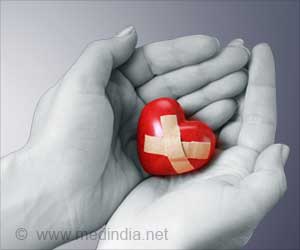Although the precise cause of Takotsubo cardiomyopathy is not clear, changes in the heart muscle cells, squeezing of the arteries (large or small) or other changes in the coronary blood vessels, or use of certain drugs (for anxiety or emergency or nasal decongestants) may hold significant causal effect.
The condition may lead to complications like low blood pressure, blood clots, heart failure, arrhythmias, and pulmonary edema (fluid in the lungs).
COVID-19 and Broken Heart Syndrome
The condition disproportionately affects women (10 times more than younger women or men of any age). Every one in five individuals suffering from heart-brain disorder holds the risk of another attack within the next 10 years.
“I don’t know how much we can really blame COVID, or how much of this is that we’re just recognizing more of it. However, heart disease is the leading killer of women and all ages, including teenagers, midlife women, and older women. This is just a component of that major killer. So, it’s really something that needs to be addressed,” says Dr. Noel Bairey Merz, director of the Barbra Streisand Heart Center at Cedars-Sinai in Los Angeles, told “Good Morning America.”
The study team utilized national hospital data of nearly 135,000 men or women who were diagnosed with Takotsubo syndrome between 2006 and 2017 to establish the link between the condition and COVID-19.
Is Pandemic to be Blamed?
“Although the global COVID-19 pandemic has posed many challenges and stressors for women, our research suggests the increase in Takotsubo diagnoses was rising well before the public health outbreak. This study further validates the vital role the heart-brain connection plays in overall health, especially for women,” says Susan Cheng, director of the Institute for Research on Healthy Aging in the department of cardiology at the Smidt Heart Institute senior author of the study.
In addition, the condition is found to have an increased incidence of 7.8% (earlier 2% before the pandemic), which is taking a hold on living over the last few years as per the Cleveland Clinic.
However, further studies are being undertaken to investigate the longer-term implications of the condition.
“As cardiologists we always think the heart is the most important organ. It’s the brain and the brain controls everything,” says Dr. Bairey Merz of Cedars-Sinai.
Source: Medindia



